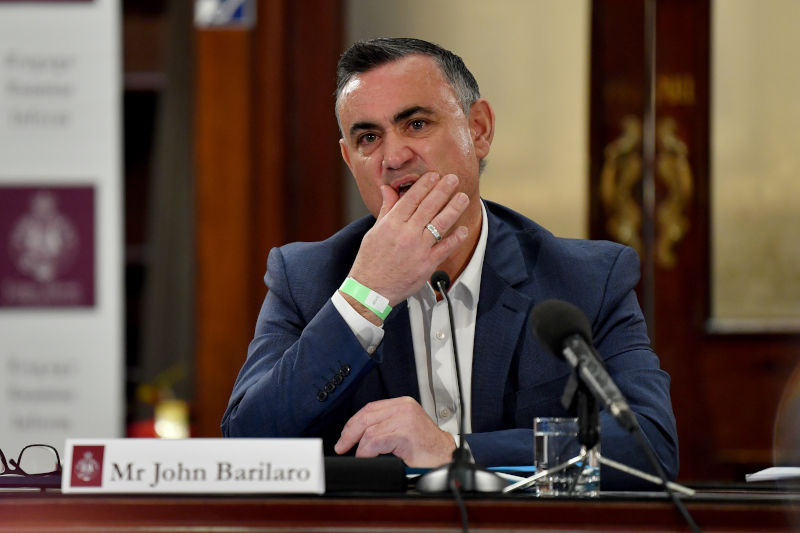NSW Inquiry into Trade Commissioner appointment has lessons beyond NSW
September 18, 2022
The former NSW Public Service Commissioner, Graeme Head, provided the Premier with a most carefully considered report on the processes leading to John Barilaros appointment as Senior Trade and Investment Commissioner.
It is a sad tale, particularly for Ms Jenny West who was offered the job in the first selection round, had that rescinded, and then had her current deputy secretary job abolished and her employment terminated.
Much of the blame should rightly be sheeted home to the ministers involved, both directly and indirectly, but Heads inquiry into the bureaucratic processes also found significant failures. Indeed, in the second selection process the matters of concern he found go to the fundamental integrity of the process.
Heads approach to assessing the processes is almost as interesting for outside observers as his recommendations; I would suggest, however, that NSW (and the Commonwealth) consider going a little further than Head recommends.
For the most part, Head does not find that the statutory requirements of the Government Sector Employment Act and associated Rule were not met. Instead, his findings of failures in both selection processes relate primarily to breaches of the Code of Ethics and Conduct. The aspects of the Code he refers to are essentially the same as provisions in the APS Code of Conduct:
- Behaving honestly and with integrity;
- Acting with care and diligence; and
- Taking reasonable steps to avoid and, in all cases disclose, any actual or potential conflicts of interest.
On this basis he found the Investment Commission CEO, Ms Amy Brown:
- Failed in not considering relevant factors when she accepted a late application in the first round from a candidate who had had access to information about other candidates;
- Did not disclose this to other panel members during the panels discussion of conflicts of interest;
- Failed to fully disclose to all panel members in the second round that she had:
- Involved the minister about the composition of the shortlist;
- Arranged for one of the candidates to meet the minister;
- Had discussions with the minister as to the suitability of Mr Barilaro while the selection process was underway;
- Had concluded contract negotiations with Mr Barilaro without the panel having determined its final assessment.
He also questioned some other aspects of her approach.
This emphasis on the Code of Ethics and Conduct should send a message not only to public service managers in NSW but also to those in other jurisdictions including the Commonwealth which have statutory codes of conduct.
Head nonetheless recommends strengthening the merit processes for senior executive appointments in NSW. These include amending the GSE Act to include some of the provisions now in Commonwealth legislation such as:
- that a secretary or agency head is not subject to the direction of a minister in respect of any of their employer functions (with a complementary provision in the Ministerial Code of Conduct);
- specifying the roles and responsibilities of secretaries, including that they are the principal official policy adviser to the minister, manager ensuring delivery of government programs, and leader providing stewardship within the department and across the government sector; and
- placing the code of conduct in the primary legislation, not just the subordinate legislation.
He also recommends some other legislative changes including to establish a Parliamentary Joint Committee to monitor and review the exercise by the Public Service Commissioner of the Commissioners functions.
My own view is that merit-based employment needs to be strengthened further than Head recommends, though my suggestions would probably be beyond his terms of reference. Like other Australian jurisdictions, NSW requires secretaries and other agency heads to be on term appointments and, unless subject to particular statutory conditions, to have their contracts open to termination for any reason (or no reason in the NSW legislation). This may well have influenced Amy Browns behaviour. At least in the Commonwealth such appointments must come after a report by the Secretary of PM&C after consultation with the APS Commissioner: no such statutory requirement exists in NSW. I believe the Commonwealth constraints need significant strengthening, and that similar constraints are needed in respect of terminations.
In NSW, other senior executives may be either on term contracts or ongoing contracts; I do not know how many are now ongoing, but for a long period in the past they were all term appointments and many may still be time-limited. Terminations are also allowed for any or no reason. In my view these practices raise serious risks of undue political pressures even if the law forbids ministerial direction. The SES in the Commonwealth are nearly all in ongoing positions, and terminations are subject to due process; there is no evidence that this has caused problems for management flexibility. Moreover, SES appointments are subject to the APS Commissioner certifying that they have been subject to a careful merit-based process. NSW should consider introducing these Commonwealth practices.
Head rightly states that it is regrettable that the Public Service Commissioner, Ms Kathrina Lo, was involved in the second process given the flaws he identified. She will need to lift her game if the Commissioner is to play the assurance role regarding senior appointments I suggest.
First published in the Canberra Times 16 Sept 2022

